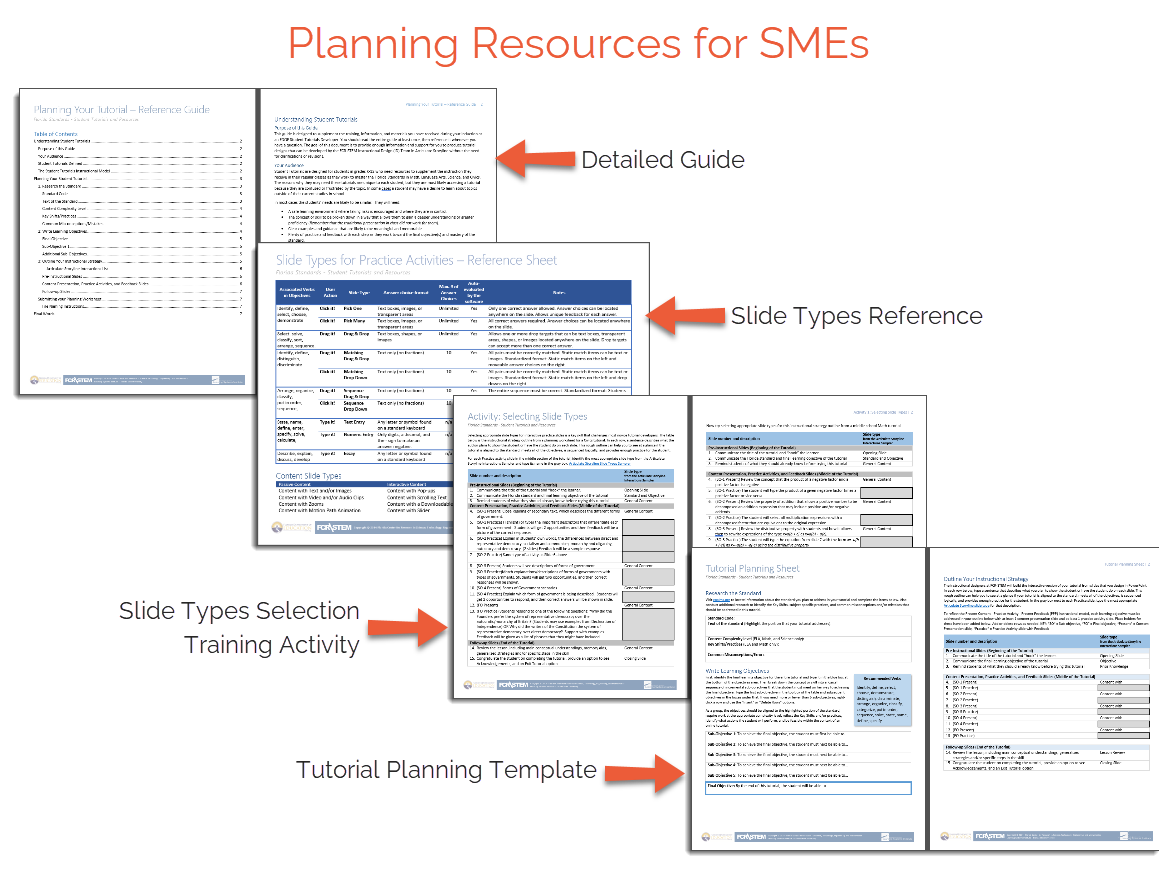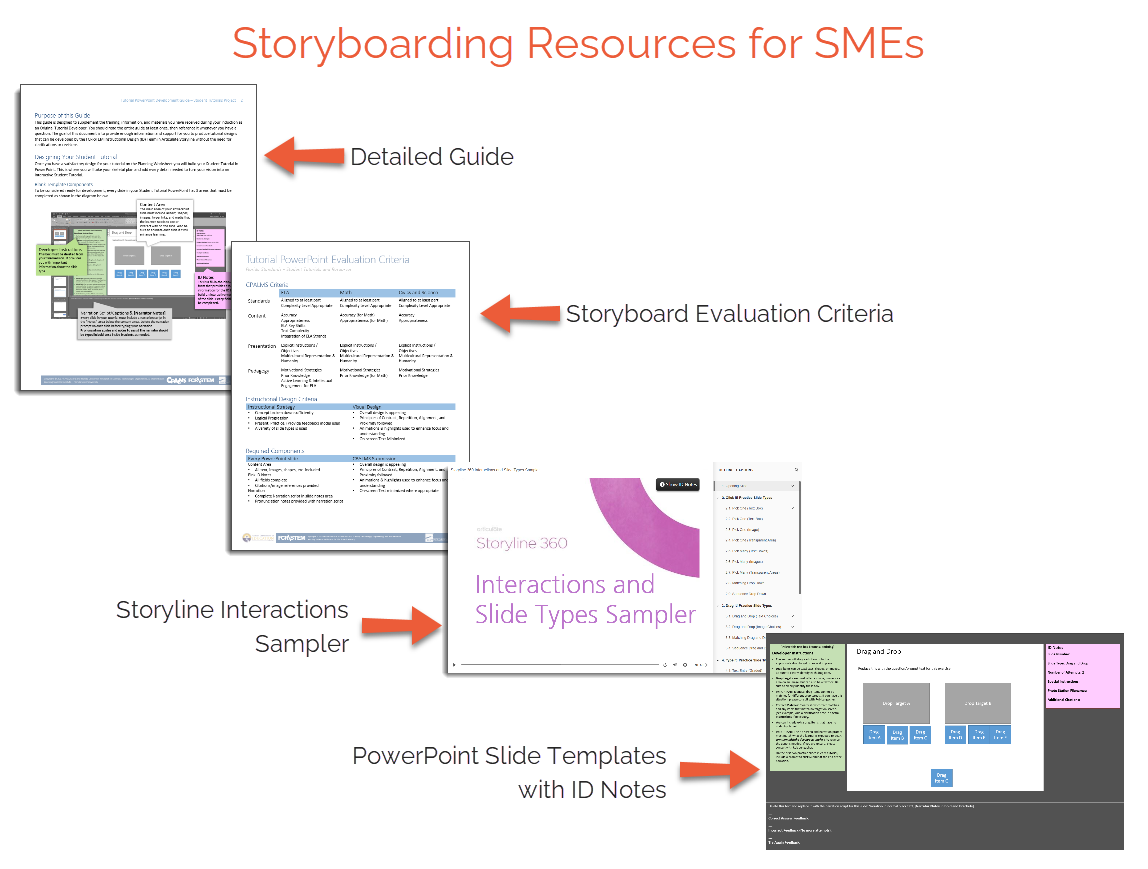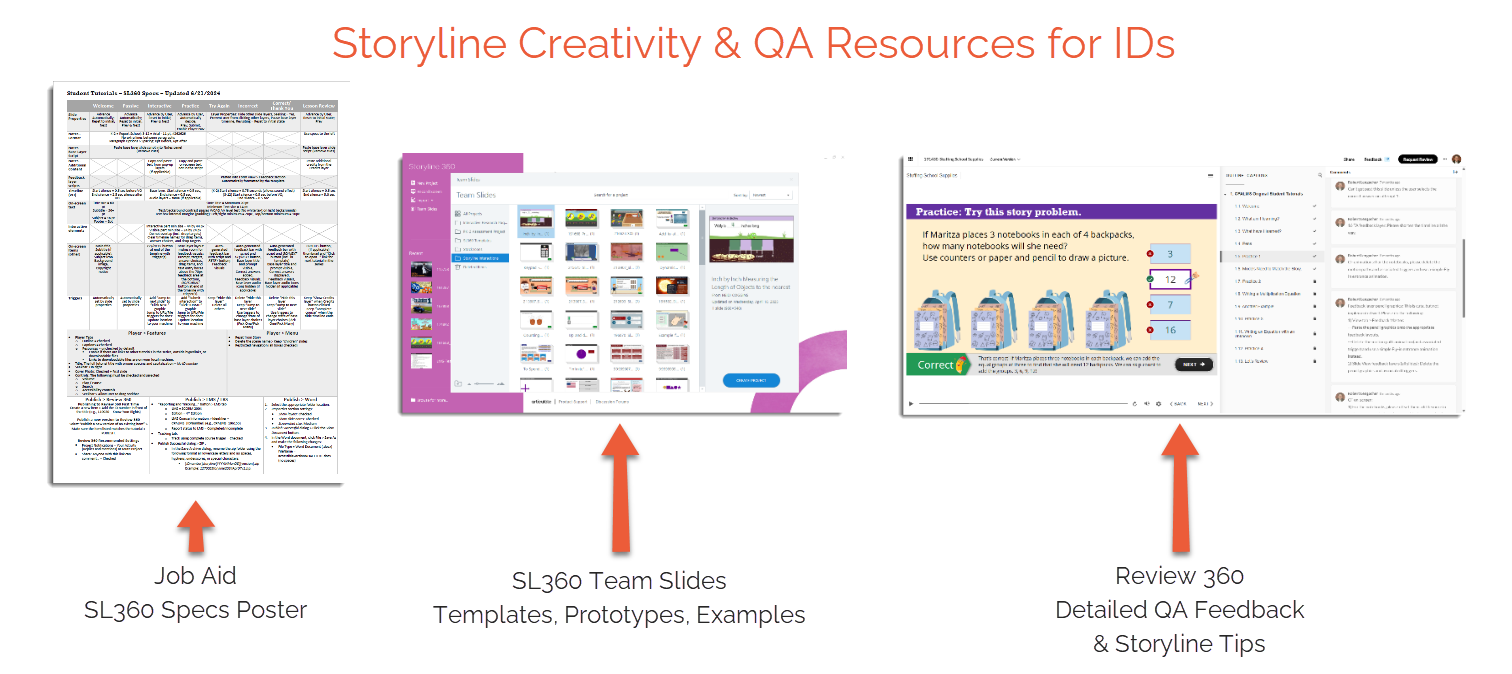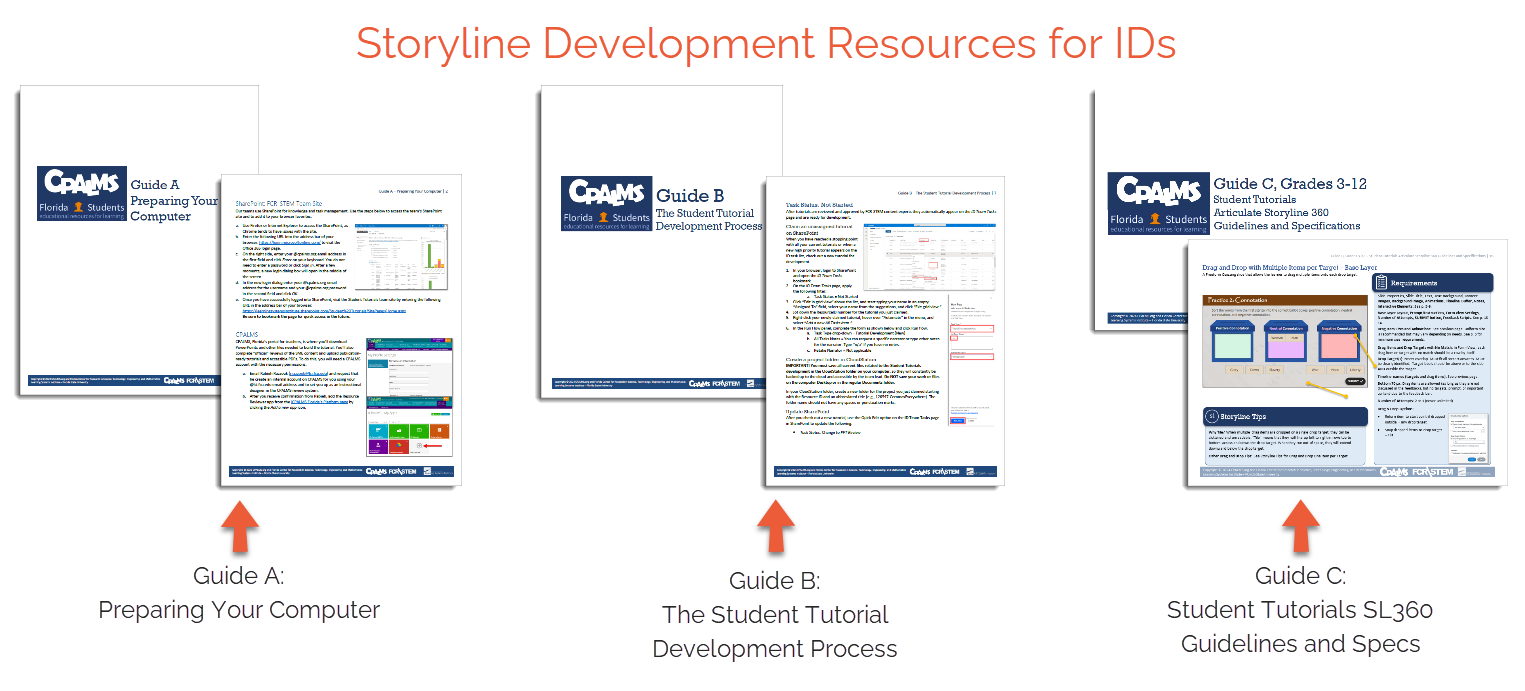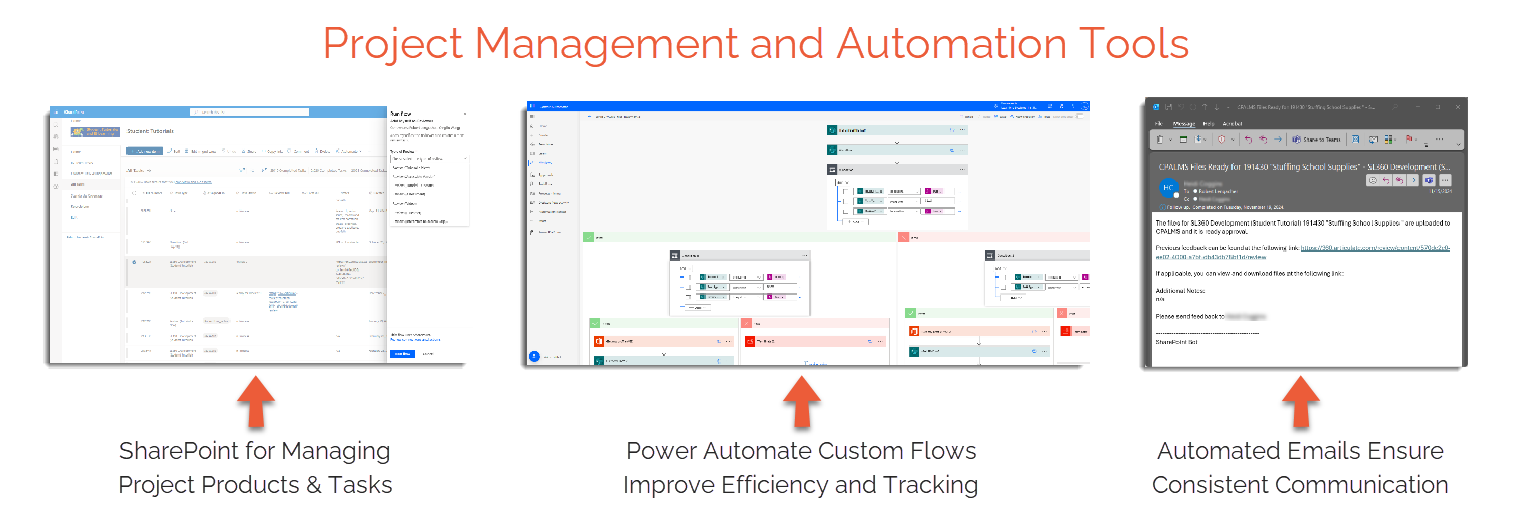Student Tutorials
Building a training ecosystem that scaled from rescue project to 500M+ completions
When my organization took over a failing state eLearning initiative in its final contract year, I was asked to lead the rescue. I assembled a team and built the training infrastructure, production systems, and quality assurance processes that turned it around. The result now serves 3+ million students and 300,000 teachers across Florida and is the most-used resource on CPALMS.
The Challenge
We inherited chaos: no standards, no templates, no LMS, no training program. Millions wasted, nothing to show for it. Teacher-authors and SMEs were working in silos, missing deadlines, with no support structure. Political constraints meant no pilot testing, no user data collection, no formal evaluation.
My job: Build a system that could produce 300+ quality eLearning modules in one year with a small team and almost no infrastructure.
The Solution: Scale Through People
Instead of just cranking out content, I built systems that turned novices into experts across every role:
People-Focused Design at Scale
Scaling this project required more than content—it required empowering people to grow into new roles and deliver great work together. To meet the complex requirements of this project and make it scalable for the future, I conducted a detailed needs, role, and content analysis and designed tailored systems and supports for each type of contributor.
Classroom Teachers
Became confident eLearning authors using planning templates, scripting guides, and the PPP model (Present → Practice → Provide Feedback), grounded in Gagné and Mayer but accessible to non-designers.
30+ Instructional Designers
Went from Storyline beginners to rapid eLearning development experts through mentoring, spec libraries, and detailed feedback.
Student Interns
I trained student interns and editors to create accessible versions of every tutorial in both PDF and Word formats. I built the workflow, developed guidelines, and trained them to apply WCAG standards using tools like WAVE. This effort ensured compliance while building a pipeline of accessibility-savvy professionals.
Subject Matter Experts
Evolved into trainers, reviewers, and peer mentors, eventually running their own quality processes and innovating new products based on the Student Tutorials model.
Voice Over Actors
Grew into dynamic voice over artists and audio editors through training, coaching, performance guidelines, and technical specs to deliver consistent narration across thousands of modules.
Project Management
I also rebuilt our SharePoint-based project management system with automated workflows and real-time reporting, helping contributors stay aligned and responsive across projects. These systems didn’t just increase productivity—they made quality scalable, aligned contributors across disciplines, and became the operational backbone for all future instructional products.I also rebuilt our SharePoint-based project management system with automated workflows and real-time reporting, helping contributors stay aligned and responsive across projects. These systems didn’t just increase productivity—they made quality scalable, aligned contributors across disciplines, and became the operational backbone for all future instructional products.
What It Delivered
1,500+ tutorials published, updated, and maintained for over a decade
500+ million completions logged
Model expanded to workforce training, statewide onboarding, and international education
Created reusable systems that became the operational standard for future products
Personally QA'd 1,000+ modules for design, accessibility, and instructional quality
Personally authored and designed 10+ modules, developed dozens of modules, updated 100s of modules, and edited 1000+ modules
Why It Worked
This wasn't about me building everything. It was about designing a system where expertise could scale, where teachers, designers, and SMEs had the tools and support to do great work together. Cross-training, modular templates, mentorship, and feedback loops let us onboard fast and deliver consistently.
What I Learned
This turnaround showed that I can operate at multiple levels: creating training systems, building production infrastructure, mentoring teams, aligning stakeholders, and designing learning experiences. If you need someone who can architect learning infrastructure or jump in to build courses, let's talk.
Tools I Used
Authoring, Development, and QA: Articulate Storyline 360, Rise, JavaScript, SCORM Cloud, Review 360
Audio & Video: Camtasia, Adobe Audition, Premiere Pro, Vyond, PowToon
Design and Docs: Illustrator, Photoshop, PowerPoint, Excel, Word, LaTeX editors, GeoGebra
Project Management & Automation: SharePoint, Power Automate, Excel dashboards
Accessibility: NVDA, WAVE, WebAIM Contrast Checker, Python (AI-assisted, custom SSML tagging app)
Platforms: Custom CPALMS LMS platform
Competencies
Instructional systems design, learning experience design, eLearning development, performance improvement, ILT (instructor-led training), VILT (virtual instructor-led training), asynchronous and blended learning, video and audio production, accessibility (WCAG, 508), SCORM/xAPI integration, SME collaboration, author onboarding and mentoring, QA systems, workflow automation, user-centered design, team leadership, platform adoption strategy
🏴☠️ Fun Fact:
“AI AI, Captain!” I enjoy partnering with co-intelligent AI tools to boost efficiency, spark creativity, sharpen accuracy, and streamline complex work. Embracing AI as a creative collaborator has been key to keeping projects innovative, scalable, and future-ready.
